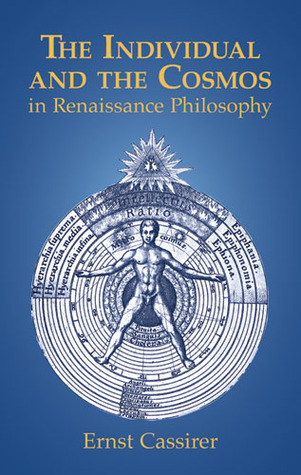Newly released
This book is new and will be uploaded as soon as it becomes available to us and if we secure the necessary publishing rights.

The Individual and the Cosmos in Renaissance Philosophy
(0)
Author:
Ernst CassirerNumber Of Reads:
68
Language:
English
Category:
Social sciencesSection:
Pages:
225
Quality:
excellent
Views:
919
Quate
Review
Save
Share
Book Description
“A landmark in the history of Renaissance thought.” — Jaroslav Pelikan.
This provocative volume, probably the single most important interpretive work on the philosophical thought of the Renaissance, has long been regarded as a classic in its field. It is considered an exceptionally insightful investigation of how the Renaissance spirit fundamentally questioned and undermined medieval thought.
In examining the changes brewing in the early stages of the Renaissance, the author reveals immense erudition and artistic insight as he perceptively describes the interdependence of philosophy, language, art, and science, considers at length the recognition of the consciousness of the individual self, and discusses the great thinkers of the period—from Leonardo da Vinci and Galileo to Pico della Mirandola and Giordano Bruno.
Among the major topics covered are the work of Nicholas Cusanus, a fifteenth-century philosopher and scholar who stressed the incomplete nature of man’s knowledge of God and the universe; freedom and necessity in the philosophy of the Renaissance; and the subject-object problem in the philosophy of the Renaissance.
Among the most significant German works on the Renaissance produced in the twentieth century, this volume, reprinted here in a superb English-language version, “should be widely used by students of the various literatures, of political theory, of the history of religion and Reformation thought, and of the history of science, as well as by those concerned with intellectual history in general.” — John Herman Randall, Jr.
Ernst Cassirer
Ernst Cassirer (1874 - 1945) was a German philosopher and historian of philosophy who belonged to the so-called Marburg School of "neo-Kantian philosophy". He is best known as the most prominent commentator of Kantian critical philosophy in the twentieth century. He left Germany in 1933, and died in New York. Among his most famous works are: “Essence and Function” (1910), “Freedom and Form” (1916), “Philosophy of Symbolic Forms” (1923 - 1929), “Myth and the State” (1942), “Symbol, Myth and Culture” (1979), “Language and Myth.” (1925).
Book Currently Unavailable
This book is currently unavailable for publication. We obtained it under a Creative Commons license, but the author or publisher has not granted permission to publish it.
Rate Now
5 Stars
4 Stars
3 Stars
2 Stars
1 Stars
Quotes
Top Rated
Latest
Quate
Be the first to leave a quote and earn 10 points
instead of 3
Comments
Be the first to leave a comment and earn 5 points
instead of 3